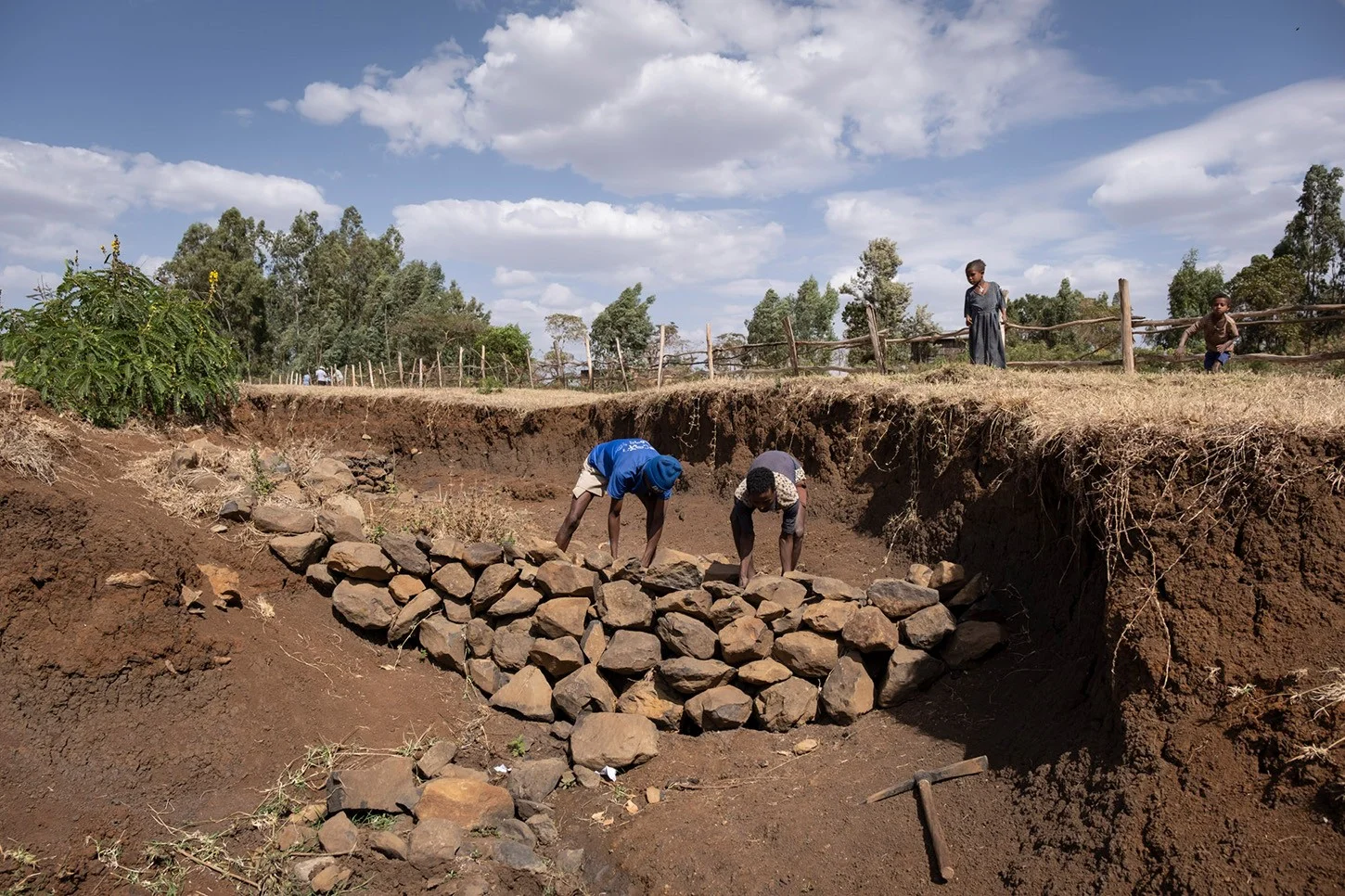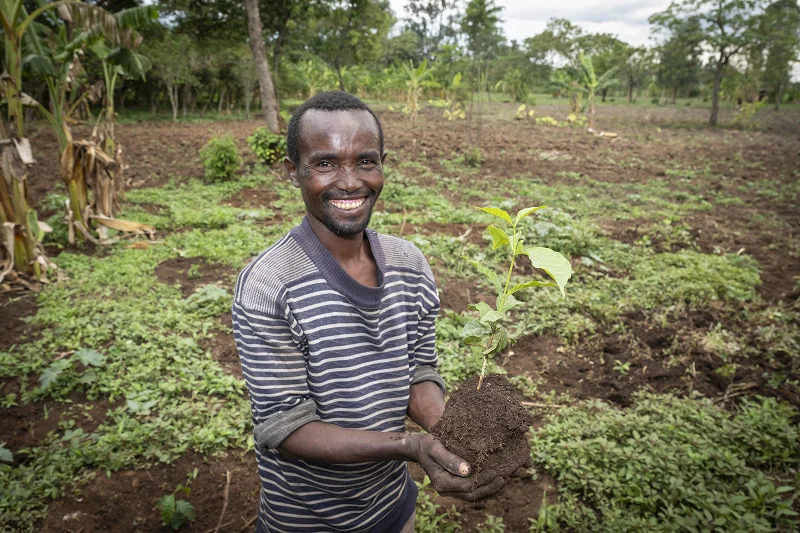Initial situation
Many small farmers harvest far too little. Their families only have enough to eat for a few months of the year. From May to October they suffer from a lack of food. The children are vulnerable to illness due to hunger. Their physical and mental development lags behind.
Backward agriculture is only one cause of the shortage. The deforestation of trees and forest areas leads to the runoff of topsoil and a reduction in the water supply for agriculture. The destruction of natural resources contributes to the fact that harvests remain small. Recently, global climate change has also been causing problems for farmers with erratic rainfall.
Because there is a lack of crafts and industry, many young people in particular are unemployed. Since they don't own any land, many have no other option than to cut down trees and sell them as firewood - a major factor in the further degradation of the landscape. Other young people are migrating to the cities. However, without training, they remain without prospects there and only increase the number of day laborers who live in extreme poverty.
Women in the rural district are traditionally disadvantaged and burdened with a high work burden. For example, they are responsible for procuring drinking water and firewood. Sustainable development is only possible when women can develop socially and economically.

Our help for self-development
Diverse support
By 2022, we will have planted around one million trees, which we provided from the project's own planting schools. In the new three-year project phase starting in 2023, we will again grow 1.2 million tree seedlings. Our reforestation offers many benefits. The newly planted trees bind climate-damaging CO2 - a contribution to combating global warming. Above all, the trees act as erosion protection and water storage. Their roots prevent the rapid surface drainage of precipitation and thus the further washing away of the topsoil. The groundwater storage is regenerated and feeds springs and streams all year round.
In addition to this indirect support for agriculture, we also offer small farmers direct help. We provide microcredit and access to improved seeds and productive livestock. In addition, we impart new knowledge in agricultural training courses: How can you achieve the best possible yields on small cultivated areas, in depleted soil and in times of climate change? For example, through the concept of “agroforestry”, in which diversified harvests are possible on a small area: fruit trees grow under tall trees and vegetables are grown on the ground.
Landless young people cannot benefit from this. We organize vocational training and start-up capital for them to start a business, for example in small retail or processing agricultural products. We also initiate and strengthen cooperatively organized groups for mothers. The women receive lessons and microcredits together and can thus become small entrepreneurs.
Whether protecting the landscape, spreading adapted agriculture or supporting unemployed young people and women: the interlinked activities contribute to food security and sufficient income for the rural population. In total, around 6000 families with around 30,000 people will benefit from the measures in the new project phase from 2023.
Klimagase kompensieren
Unter der Klimaerwärmung leiden vor allem diejenigen, die dazu am wenigsten beitragen: Die besonders armen Menschen in den Ländern des Südens. Dort sorgt das veränderte Klima bereits für Ernteausfälle. Bei Missernten leiden Familien Mangel und Hunger.
Wir boten in Fogera Spendenden und Unternehmen an, den Ausstoss ihrer unvermeidlichen Treibhausgase in unserem Projekt zu kompensieren. Klimakompensation bedeutet: Die Spender sorgen dafür, dass schädliche Klimagase an anderer Stelle gespart oder wieder aus der Atmosphäre entnommen werden. Aber bei Menschen für Menschen bedeutete die Klimakompensation in Fogera zusätzlich: die Bekämpfung von Armut.
Unsere Baumpflanzungen verbessern künftig die Lebensperspektiven der ärmsten Familien, schützen vor Bodenerosion, sorgen für einen besseren Wasserhaushalt und damit für bessere Ernten. Gleichzeitig binden die Bäume Abertausende Tonnen CO2 – und helfen so dem Klima. In Afrika – und in der Schweiz. Bis Projektende zogen und pflanzten wir rund 1,7 Millionen Bäume. Diese holen binnen 10 Jahren rund 94´000 Tonnen Kohlendioxid aus der Atmosphäre.
Daneben konnten Einzelspender und Firmen Ihre Treibhausgase über holzsparende und gesundheitsschonende Herde ausgleichen. Denn Frauen auf dem Land in Äthiopien kochen meist immer noch über offenem Feuer mit starker Rauchentwicklung – schädlich für ihre Gesundheit und das Klima.
In anderen Projektgebieten gibt es weiter Aktivitäten, die sich positiv auf die weltweite CO2-Bilanz auswirken. Neben der Verteilung der holzsparenden Öfen sind hier etwa die Abgabe von Mangobäumen oder Kaffeesetzlingen an Kleinbauern zu nennen. Doch hier ist die Berechnung der realen CO2-Einsparungen aufgrund der kleineren Grössenordnung kaum seriös machbar. Deshalb bieten wir bis auf weiteres keine CO2-Kompensationsmöglichkeiten an.
